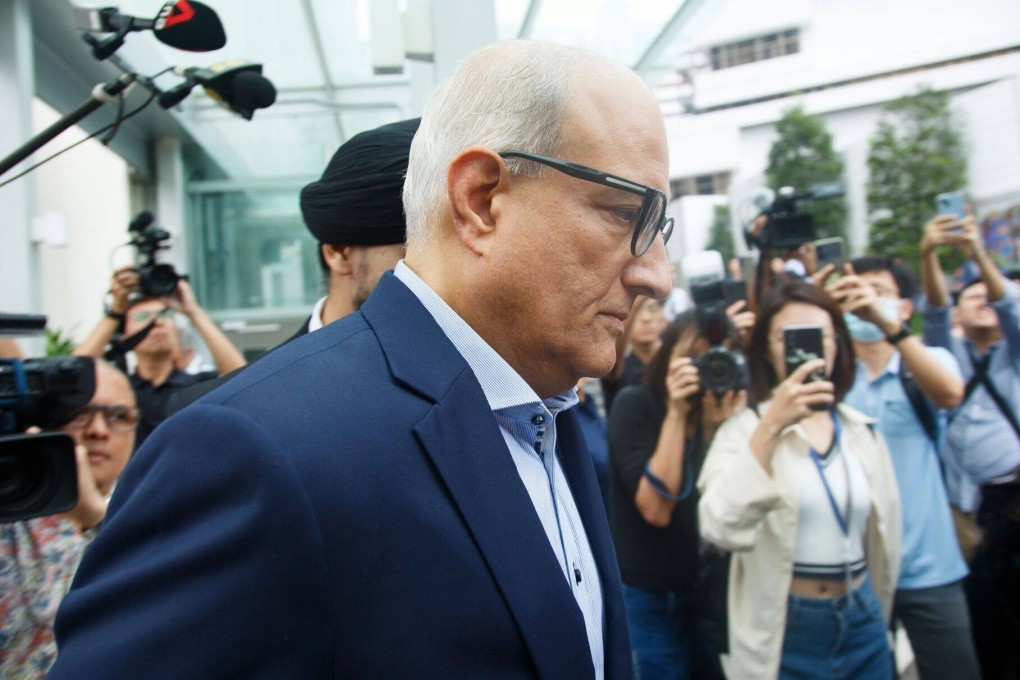Singapore’s corruption case against ex-minister S. Iswaran draws ‘chump change’ jokes, praises for tough stance
- Some commentators in the region are bewildered by the underwhelming value of the gifts that former transport minister Iswaran allegedly received
- Several contrast the case with the 1MDB scandal, with one joking the case would be ‘just another Tuesday’ in Malaysia

The items add up to less than S$400,000 (US$298,000) in value. Within hours of Iswaran’s appearance in court to be slapped with 27 charges on Thursday, memes and wisecracks flooded social media feeds and messaging platforms. Many poked fun at what seemed like a long list of items of underwhelming value that he allegedly obtained from property tycoon Ong Beng Seng.
While some of these as gifts or “gratifications” — such as a flight on private jet and tickets to West End musicals and a hotel stay at the Four Seasons — are beyond the dreams of most citizens, they pale in comparison with the multi-million-dollar bribes that the region’s politicians have been known to pocket.
Across the border, some Malaysians expressed admiration for Singapore’s apparently higher standards of probity. Rajiv Rishyakaran, a state assemblyman from Malaysia’s Democratic Action Party, tweeted a table listing all the charges Iswaran faced, along with the caption: “Now in Malaysia, would we consider this corruption?”
Netizens responded that the sums involved were minuscule compared with corruption cases in their hometowns, with some describing the amounts as “loose change” or kacang which means “peanuts” in Malay.
“I think in Malaysia, this is just another Tuesday,” one claimed, while another wrote: “In Malaysia, a corruption case gets you promoted.”
Others expressed envy, with one netizen using emojis to voice disbelief at Iswaran’s decision to resign from his official posts as minister and member of parliament and from the ruling People’s Action Party (PAP), as well as return the salaries and allowances he received since investigations began last year.